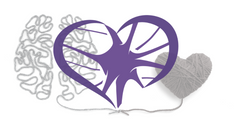Are the Early Years Significant to Revealing a Child’s Potential?
It is sometimes quite surprising and eye opening to many adults that the brain doesn’t complete development until about the age of 25. It can be somewhat overwhelming to realize. However, it is incredibly valuable to have the understanding that the greatest time of brain growth and brain development occurs in the early years between birth and the start of kindergarten.
The wonderful news is, research provides invaluable information to relieve the minds of caring adults. Neuroscience offers the reassuring knowledge of what developing brains need most for learning, health and well-being in life. And the best news is, to support healthy brain development during everyday life isn’t as complicated as it may seem. There are 4 basic areas that need to be provided... meeting physical needs, nurturing interactions, safety and security and an abundance of play.
It Is Just This Simple...
Brain development happens in sequential fashion, from the least complex functioning area to the most complex. There are three crucial points to make about this fact.
- Even though the most complex area of the brain is the last to complete development, experiences in the early months and years have a very significant impact.
- Children need appropriate experiences in the early months and years to wire the brain in preparation for more complex learning.
- Pushing academics too early and ignoring the incredible impact of nurturing relationships and play can be detrimental.
To develop the higher functioning areas of the brain, secure responsive and predictable nurturing relationships are crucial. All human beings are biologically dependent on relationships. When the brain of a baby or child feels a sense of trust and calm it is then able to relax and is ready to learn.
This security is essential to establish right from birth. It contributes to a brain ready for learning, self-regulation, resiliency, positive self-worth, health and getting along with others.
Children also must have appropriate and safe opportunities to experience things for themselves and feel the sense of accomplishment that goes along with completing tasks independently. To support this, adults need to allow (not force) enough time for children to try things over and over again at their own pace. Repeated experiences create strong brain connections. This is why children often want the same song or story repeated.
Time for independent trial and error is extremely valuable. Children however, also need someone available to help and encourage them when things get overwhelming or to help them through new situations or sensations. Children feel comfortable and develop a continued sense of excitement toward learning when caring adults provide available support and an appropriate balance of stimulation.
Due to rapid growth at this time, the brains of babies, toddlers and preschool children are especially vulnerable to experiences and their environment and will therefore continually adapt to what they are exposed to. Environments that are chaotic, unpredictable, disorderly or highly stressful have a direct negative influence on the development of the brain.
According to, Bruce D. Perry, M.D., Ph.D.:
“The experiences, environment and opportunities we provide our children help determine their strength and vulnerabilities. If the child’s world is chaotic, violent, and emotionally or cognitively impoverished, his potential will remain unexpressed. If the child’s world is safe, nurturing, and rich in social, emotional and cognitive opportunities, he or she will flourish. Central to a child’s healthy development is the opportunity to act on his natural curiosity – to explore, to plan and to thereby, to learn.”
Early learning environments that are appropriate for a child’s developmental level provide opportunities to learn through movement, play and hands-on exploration. Through this type of learning, children test new knowledge in a relaxed setting and then naturally relate it to existing knowledge and store the new information.
Children just naturally want to explore, spin, pretend, run, pour, skip, create, imagine, pound, throw, squish, hop, sing, and figure out the world. They are doing exactly what their growing brain needs. Understanding adults just need to provide plenty of wonderful opportunities for this to occur, then not get in the way and provide responsive and caring support when needed. It really isn't complicated is it?
With this research and knowledge in mind, Neuro-Nurturing Interaction Packets were created to make it even easier for busy parents and caregivers to have simple ways to implement immediately all the things children need most for their development! Keeping in mind that the early years are crucial for healthy brain development, this purposefully screen-free packet series is designed with one per age from Birth through age 5.





Be the first to comment